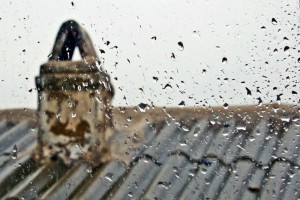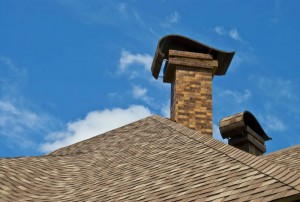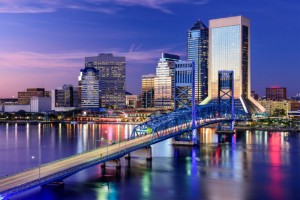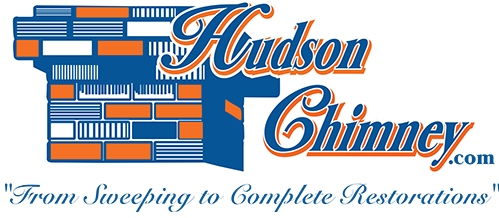by Mark Hudson | Dec 19, 2016 | fireplaces
You may have your dream fireplace that fits your family’s needs and your home’s decor. However, even your dream fireplace may need a rebuild. The fireplace withstands the most abuse, and gets the least attention. Damage may cause you to schedule a fireplace rebuild. Also, it may be because your fireplace needs an upgrade. Whatever the reason, a fireplace rebuild can be a big job. That being said, when it’s necessary, it should not be overlooked!
 Choose the Right Professional for the Job
Choose the Right Professional for the Job
Choosing the right chimney expert for a fireplace rebuild is as important. In fact, it’s just as important as finding the right surgeon for a knee replacement. When you choose a CSIA Certified Chimney Sweep® (CCS) you can be sure of these things:
- You’re getting a professional with training and experience.
- They will get the job done correctly.
- These professionals use the correct materials.
- They always have the correct dimensions.
- You will receive the most efficient burn for your fireplace.
One of the major reasons that your dream chimney may need a complete rebuild? Incorrect construction. Oftentimes, a contractor who does not have adequate training will build a fireplace incorrectly. In addition, using improper materials that cannot withstand high heat concentration.
Choosing Hudson Chimney means your firebox will not only be rebuilt, but will be rebuilt out of special firebricks. These firebricks are designed to withstand the abuse and high temperatures that exist within the fireplace. Some less-experienced or non-certified chimney sweeps may continue to repair the damaged fireplace. However, this is a waste of time and money. A Hudson Chimney technician doesn’t just fix the damage, we correct the problem at its source.
Problems That Can Lead to a Complete Fireplace Rebuild
When your fireplace has extensive damage, your chimney sweep may recommend a rebuild.
This type of damage can include:
- Water Damage
When water penetrates the chimney system it destroys masonry from the inside out. The masonry can begin spalling, cracking, and lime-leaching finishes them off.
- Heat/Smoke/Creosote Damage
Persistent problems with the chimney system lowers the efficiency. Therefore, the fireplace can’t withstand heat, smoke, or creosote. This can cause stains, cracks, and high-temperature fires.
Does your fireplace need repeated repairs, extensive repairs, or just a face-lift? You may want to discuss a complete fireplace rebuild with your trusted Jacksonville chimney sweep. Hudson Chimney has been serving the communities in Jacksonville for over 20 years. In addition, offering a full menu of services, including fireplace rebuilds by a master mason!
Call Hudson Chimney at 904-282-4159 or contact us online for your convenience.
by Mark Hudson | Dec 13, 2015 | Water Damage And Chimneys
Since your chimney extends from your roof, it is exposed to all of the elements of weather, including rain and snow. While masonry chimneys are built to last the lifetime of a house, this constant exposure to water from rain and melted snow can cause damage and deterioration to a chimney, especially if it is neglected. The Chimney Safety Institute of America (CSIA) claims that water is the biggest enemy of a masonry chimney and recommends regular maintenance to prevent expensive repairs due to water penetration damage and deterioration. Hudson Chimney would like to tell you more about how water damages your chimney and how we can help prevent this damage and deterioration.

How can water damage my chimney?
According to the CSIA, all of the masonry materials that are used to build a chimney can suffer from accelerated damage after being exposed to water for a long period of time. Water causes the bricks and mortar to erode, and during the winter when the temperature drops below freezing, any water that has been absorbed into the bricks and mortar will freeze and expand. When the weather warms up, this water will thaw and cause the masonry materials to crack and break apart. This type of damage is also known as spalling, and if left unrepaired, it can lead to bricks and pieces of mortar falling from the chimney as well as the collapse of the entire structure. If water leaks into a chimney, it can also cause rusting damage to the liner, damper, and other metal components, and it can even damage the interior of your home by staining ceilings and walls.
How can Hudson Chimney protect my chimney from water damage?
Our CSIA-certified chimney technicians have several ways to prevent water penetration of your chimney: chimney caps, flashing, and waterproofing.
Called the least expensive way to prevent water penetration of a chimney, a chimney cap keeps water from even entering into your chimney. We have several different types of caps, and our chimney experts can help you find the perfect cap for your chimney and install the cap to completely cover the opening. Chimney caps have other benefits as well, including keeping birds and animals out of the chimney and preventing hot embers and sparks from jumping out of the chimney to ignite an accidental fire. We also have chimney caps that can help improve the draft in your chimney if you have problems with backdrafting.
Consisting of pieces of metal, flashing wraps around your chimney where it meets the roof to keep water from getting in at that point. In our years of working on chimneys, we have seen inadequate flashing systems that are coming apart and actually let water enter into the chimney. We construct customized flashing systems to completely protect your chimney from water penetration. We also work with state-licensed roofers to ensure the flashing fits correctly along the roof.
Using a 100% vapor permeable formula, our chimney technicians can waterproof your chimney by applying a coat of this formula to your entire chimney. We use ChimneySaver products that are designed especially for chimneys. This formula provides a barrier on your masonry chimney that keeps water from leaking into the bricks and mortar but allows fumes and vapors to easily escape so that they do not become trapped to cause further damage.
Protect your chimney from water damage this winter. Contact us at Hudson Chimney to schedule an appointment for one of our water penetration prevention services.
by Mark Hudson | Sep 29, 2015 | Chimney Safety Week
Whenever September arrives, Hudson Chimney knows that not only will we be busy preparing chimneys in the Jacksonville, Florida area for the upcoming fireplace season, but we will also be getting ready to celebrate with the Chimney Safety Institute of America (CSIA) during their annual National Chimney Safety Week, which occurs the last week of September (September 27 – October 3, 2015). This is an opportunity for chimney professionals across the country to educate people about fire and chimney safety before the weather starts getting cold. A fireplace and chimney system can present many hazards, so it is important to know and follow safety practices whenever you use this part of your home. The last thing you would want to happen this winter is a devastating chimney fire because you neglected to schedule your annual chimney inspection. The Director of Education for the CSIA, Ashley Eldridge says, “Fires in chimneys can start for a variety of reasons. They can be poorly built, or incorrectly designed, or the chimney flue sees a buildup of creosote over time. If you’ve ignored the need for an inspection, you are taking a risk.” Other than having your chimney professionally inspected every year, the CSIA offers other things you should do to reduce your risk of a chimney fire, and we would like to share them with you.

Your chimney is not the only part that should be inspected.
Your wood-burning or gas fireplace should also be examined by a professional to be sure no potential hazards exist. A wood-burning firebox could also have a large buildup of creosote, and this can be an extremely dangerous situation. Ensure your firebox is free from any creosote accumulation before you light a fire inside it. Gas and propane logs may not produce any soot or creosote, but they can deposit corrosive substances within your chimney. Ceramic logs in gas fireplaces can also deteriorate and clog the vents and pilot light. Having the logs checked in your gas fireplace can prevent chimney fires and other fireplace issues that can happen when the pilot light and other connectors are not correctly working.
Be prepared for all severe weather hazards.
To be sure you are ready for a severe storm, such as a hurricane, the CSIA suggest three steps:
1. Know your risk.
Before leaving home in the morning, check the weather reports to be sure you are prepared for any coming weather event.
2. Take action!
Find out more about what kind of weather your area should expect this fall. Make an emergency supplies kit. Come up with a communication plan for your entire family in case of an emergency.
3. Be a force of nature.
If a hurricane or other severe weather storm is heading your way, spread the word! Inspire your friends and family by letting them know how you have prepared for the potentially bad weather.
If you would like to learn more about National Chimney Safety Week, contact us at Hudson Chimney. We are happy to educate you on fire prevention!
by Mark Hudson | Jun 24, 2015 | Chimney Smells
In the summer, our staff at Hudson Chimney gets a lot of questions from our customers asking why their chimneys are so smelly. Several things can be behind unpleasant chimney odors, and these bad smells entering your home through the chimney and fireplace are intensified by the heat and humidity of summertime. Our certified chimney sweeps are very experienced with stinky chimneys and fireplaces, and they understand how to get rid of any bad odors from your hearth. To help you understand how chimneys can be smelly enough to affect the living spaces of your home, we would like to tell you more about the reasons behind stinky chimneys.

NEGATIVE AIR PRESSURE
How do unpleasant odors enter your home through the fireplace and chimney? The answer to this question is negative air pressure in your house. If you seal up your home too tightly during the weatherizing process to prepare for the summer by keeping the cold air conditioned air indoors, this can force smoky air to enter your home from the fireplace instead of exiting out the chimney because the air has no way of escaping. Our chimney technicians at Hudson Chimney know how to deal negative air pressure problems. We have found that installing a top-sealing damper will promote proper air circulation and eliminate issues with negative air pressure.
CREOSOTE
Creosote is a natural compound that forms as a result of the combustion and condensation processes that occur when burning wood, according to the Chimney Safety Institute of America (CSIA). Made up of amorphous carbon, creosote clings to the inner walls of your chimney and will form large deposits if you allow them to accumulate by not scheduling a professional chimney sweeping every year to have them removed. These deposits are not just dangerous because they are extremely flammable, but they also smell badly. Creosote gives off a sour, acrid odor which is worsened by heat and humidity in the summer. Our CSIA-certified chimney sweeps at Hudson Chimney can easily take care of this problem by performing a thorough chimney cleaning and removing the source of this unpleasant smell.
OTHER CAUSES OF BAD ODORS
If you notice musty odors, your chimney may be suffering from chimney leaks. To prevent water from rain and melted snow from penetrating your chimney to create bad smells, our chimney technicians at Hudson Chimney can protect your chimney from water leaks by installing a chimney cap on the top of your chimney. This chimney cap will also prevent birds and animals from getting into your chimney to nest, which also causes unpleasant odors. Debris from their nesting materials and their droppings can smell badly, and in a worst case scenario, a bird or animal could possibly get trapped within your chimney and even die. This situation will result in very unpleasant odors within your chimney that could affect the living spaces in your home.
Do you have a smelly chimney? If so, contact Hudson Chimney so we can diagnose the odor problems and make your living situation better.
by Mark Hudson | May 28, 2015 | Jacksonville
In 1979, Mark Hudson founded Hudson Chimney to provide professional fireplace and chimney services in Northeastern Florida. Certified by the Chimney Safety Institute of America (CSIA) as a chimney sweep and a dryer vent technician, Hudson is proud to serve the city of Jacksonville and works hard on community projects to make Jacksonville an even better place. We would like to tell you more about this beautiful city we have served for over 30 years.

WATER ACTIVITIES
With over 22 miles of beaches, Jacksonville is home to three beaches: Atlantic Beach, Jacksonville Beach, and Neptune Beach. Our beach areas offer dining, entertainment, lodging, and recreational activities for the entire family. Fishermen have the best of both worlds in Jacksonville with freshwater and saltwater fishing opportunities. You can even deep sea fish in the Atlantic Ocean. The St. Johns River flows through the city and provides a place to kayak and paddleboard.
ARTS AND CULTURE
Named as one of the top 25 destinations for the arts in this country, Jacksonville is home to several museum, including the Museum of Contemporary Art Jacksonville (MOCA). At MOCA, you will find over one thousand works of art, such as painting, photography, sculpture, and printmaking. You can also find live theater and live music throughout the city as well as festivals throughout the year that celebrate jazz, blues, and country music.
SPORTS
Sports fans have a lot to enjoy in Jacksonville. You can watch professional football by going to see a Jacksonville Jaguars game, and you can catch one of the biggest professional golf tournaments, THE PLAYERS Championship. Golfers can even play a round at the site of this tournament. Outdoor sports enthusiasts can enjoy biking, hiking, canoeing, surfing, and other activities along our scenic waterways.
HISTORY
Filled with multiculturalism, the history of Jacksonville can be found throughout the city. One of the city’s most important historical sites is Fort Mose, which was both the earliest legal settlements in America for free Africans and the precursor site to the Underground Railroad. For a deeper look at the history of Jacksonville, tour one of our historical museums, such as the Mandarin Museum & Historical Society that shows what life was like in 19th century Florida.
SHOPPING
Whether you prefer shopping at a mall, at locally-owned boutiques, along the beachside, or in a downtown setting, Jacksonville is filled with opportunities to shop until you drop. If you like to save money, you will enjoy shopping at our two outlet shopping centers. No matter your budget, shopping enthusiasts will love what our city has to offer.
Want to know more about Jacksonville? Contact Hudson Chimney to find out our favorite places and things to do in this beautiful city.
 Choose the Right Professional for the Job
Choose the Right Professional for the Job



